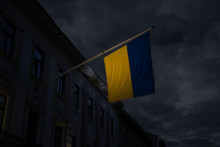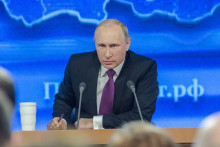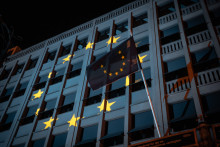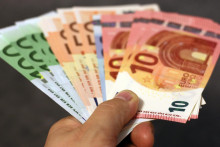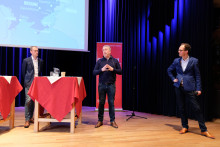Russian President Vladimir Putin recognised the so-called people's republics of Donetsk and Luhansk as independent states in a long TV speech on Monday. On Thursday, he announced a ‘military operation’ in Ukraine. Shawn Donnelly, assistant professor of Technology, Resilience & Europe, does not expect it to stop there. ‘Certainly when I heard Putin's long speech earlier this week. It's quite clear that he wants the entire country. Putin will see step by step how far he can go in incorporating Ukraine into a new Russian empire. The question now is how the West will react.'
Immediately after the recognition of the ‘people's republics’, several countries announced sanctions. ‘But Russia is prepared to suffer the pain. Moreover, the country has very consciously made itself less vulnerable to sanctions from the West over the past decade.' Despite this, the fact that Germany has suspended the Russian gas pipeline Nord Stream 2 is big news, Donnelly says. ‘Especially since Germany and Italy have so far adopted a very modest attitude towards Moscow because of their dependence on Russian natural gas.’
It is precisely this dependence on Russian gas that makes a strong reaction from Europe so difficult, says the assistant professor. Moreover, new agreements on gas supplies with 'senior partner' China make Russia less dependent on money from the West. That is why Europe must work as quickly as possible to secure a combination of sustainable energy and fossil fuels outside of Russia, says Donnelly. ‘That will really be a race against the clock. This winter, Europe can manage with its own reserves, but if Putin shuts off the gas next winter, and not enough has been done to expand our own capacity, then Europe will be in trouble.’
The conflict with Russia will have negative consequences for the European people, says Donnelly. ‘After the Covid crisis it will feel a bit like: now this! But Putin's actions are an existential threat to the European Union. He is trying to frustrate the very unification of Europe, to make Russia the dominant military and economic power in the region.' Yet these are long-term consequences, the assistant professor knows. At the moment, it is mainly the Ukrainian people who are paying the price. ‘They have good reason to be very worried in case of an invasion. It will be a rough ride in any case, with many civilian deaths and refugees.’
Ukraine has increasingly turned towards the West in recent years, Donnelly continues. ‘Now they are rightly asking the question: can we expect help from Europe? Until now Europe has been very reactive.’ According to the assistant professor, it is crucial that Europe does its homework in the coming months, for example by strongly reducing its dependence on Russian gas, and bolstering its defence capacity. ‘That would make a united, hard stance an option. And this could make it difficult for Putin to achieve his goals.’


